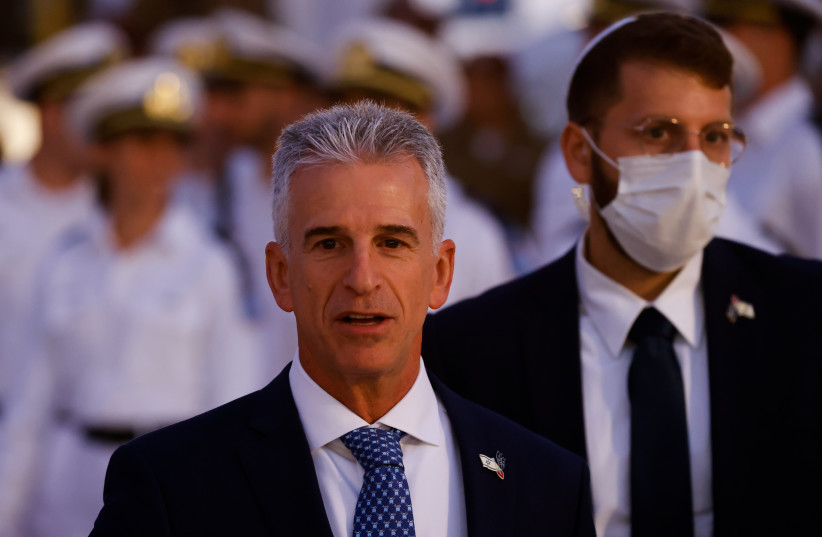The Mossad under current Director David Barnea has ratcheted up its technology revolution, with flashes of his new style even appearing in some operations he helped manage as deputy director, the Jerusalem Post has learned.
Shortly after Barnea took over he replaced a number of top Mossad officials and reorganized certain departments to more significantly emphasize and invest in cutting-edge technologies, whether in the cyber arena or elsewhere.
The latest example of Barnea's efforts was reported on Thursday in Yediot Ahronot which noted that the spy agency's website has advertised to hire 54 new employees in the areas of cyber defense, artificial intelligence and big data, compared to much less significant advertising in the traditional arenas of human spying and operations.
One advertisement sought men or women with at least two years of experience in those above areas, while also having stellar interpersonal skills, high self-confidence, proactive nature and resilience under conditions of extreme pressure.
In a speech that was leaked to the press last week, Barnea noted that there would be a need to redirect even more resources from some of Mossad's celebrated and traditional wings in order to keep up with the break-neck pace of the technological revolution.

"Enormous transformations will be needed regarding areas of generating growth within the organization to open new technological units," said the Mossad chief.
Barnea did not start the technology revolution.
Former Mossad chief Meir Dagan was the force behind the reported Israel-US computer virus STUXNET which destroyed over 1,000 Iranian nuclear program uranium-enriching centrifuges in 2009-2010.
His successors, Tamir Pardo and Yossi Cohen, also made major jumps forward in the clandestine agency's technological capabilities.
During Cohen's era, Mossad publicly established in 2017 an investment fund for start-ups working in technologies relevant to its needs as a spy agency.
This idea garnered nearly universal praise even from corners like former Mossad chief Danny Yatom, who normally would be critical of many policies under governments led by Benjamin Netanyahu.
Yatom told the Post at the time that Cohen’s new fund was a “very good idea,” noting that “the CIA has a similarly big fund…some of the most important CIA technologies come from cooperation with civilians.”
He qualified that the idea of the Mossad working with the private sector was not entirely new and that the Mossad had done this in the past, but that it had “never formally established a fund specifically for start-up companies” geared to the Mossad’s needs.
The former Mossad chief said that Cohen’s concept made sense “in a changing world in which a large number of key technologies today come from start-ups and the Mossad wants to influence the trend.”
Asked if expanding more into the private sector created a greater risk of an Israeli-style Edward Snowden gaining top secret clearance and leaking Mossad secrets to the public, Yatom said that, “even today there is a risk of a Snowden.”
He said the Mossad will “need to check every start-up” like the Israeli defense establishment currently checks its various partners like Rafael and Elbit.
It was unclear if Barnea's initiative to hire more in-house staff would alter the volume of Mossad work with the private sector.
